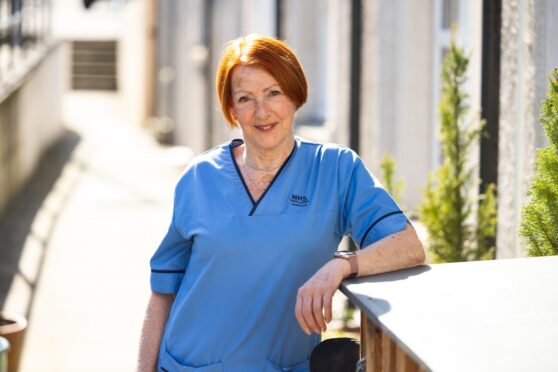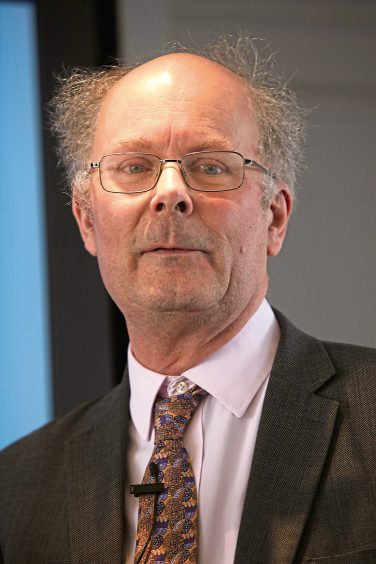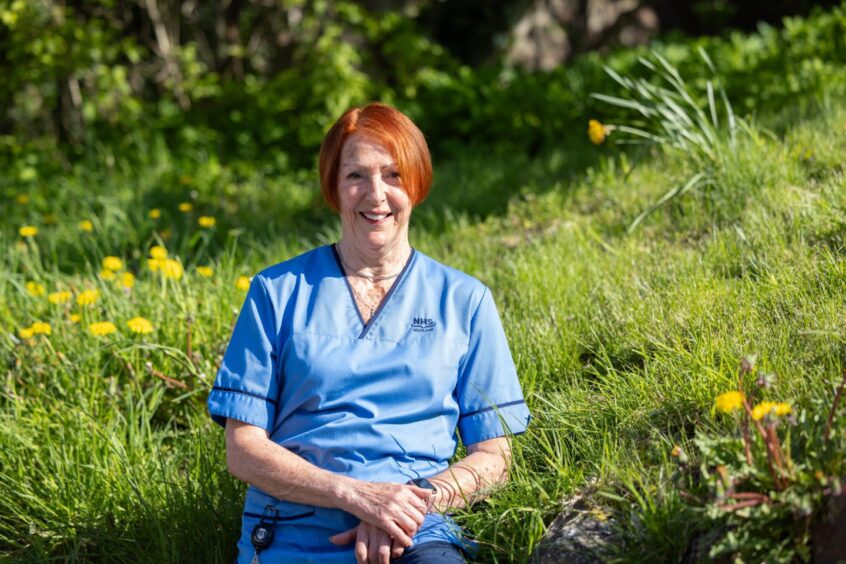
Working past 65 keeps your brain sharp because it continues to make it work better to solve problems, say researchers.
A study of retired people in paid and voluntary jobs still using their professional skills showed that clocking off work while approaching late adulthood may cause a steeper fall in mental agility.
The study by Spanish researchers also showed that older workers were also happier with their lives.
The nation’s favourite political guru Professor Sir John Curtice, 70, appeared to work around the clock in recent elections, spending his days off working on his allotment and baking.
Older still is Professor Ewan Macdonald, who heads Glasgow University’s Healthy Working Lives Research and Teaching Group at what he describes as “well into his 70s” as well as his clinical job as an occupational health doctor.
“Work can give people a sense of purpose which is vital to helping to maintain health and it does not have to be a full-time job but one which maintains your interest,” he says. “Retirement is just not good for you and unemployment leads to what we call inflammatory markers in your blood, which can lead to illness.
“People who work are enthusiastic about other aspects of life and are likely to be more active which maintains health. The aim should be a job with the hours that suit you and where the rewards are not just financial.
“Being healthy enough to work means making an effort to stay well. Diet is critical and that means avoiding processed foods where possible. Sadly, Scots are one of the fattest nations and that is a driver for an unhealthy and shorter life. Exercise like walking helps maintain a good weight and also helps you socialise by meeting others. There is tremendous value in having friends old and new.
“I have been lucky not to have been affected by a disease like an excessive cancer, I exercise by getting out and about and have a job I love. While that is not possible for everyone, it is worth the effort to remain working and stay healthy for longer whether it’s working in your local supermarket part-time or answering the phone at a local garage or customer service centre.”
State pension age is projected to rise to 68 by 2035 and 71 in 2050.
The over-55s are such a vital part of the economy that the Demos – a leading UK policy think tank – recommends an annual tax-free £1,000 Priority Jobs Bonus for all workers over 55 working in shortage occupations and earning less than £50,000 a year.
Its Platinum Pound report into boosting employment in over-50s urges going to good lengths to hold onto to older workers to help grow the economy.
“Workers over the age of 50 already make up one-third of the UK workforce, and this will continue to grow in the coming years given the country’s ageing population,” it says.
While the number of over-65s in jobs is higher than 20 years ago Demos expresses concern over those who left work during the pandemic and did not return. About 180,000 are missing in action in UK factories, offices and frontline jobs.
Italians do not consider themselves old until they are 75, according to the country’s Society of Gerontology and Geriatrics.
Public Health Information Scotland sets that dial more than a decade earlier and in its Working to Improve Public Health and Reduce Health Inequalities statements says: “Older people are defined variously as over 60 or 65 years of age.”
Depressingly, the UK lags behind most other high-income countries which have seen the number of older workers increase since the pandemic.
Recently, however, many over-50s left work during the pandemic, and because the employment rate of this age group has remained lower ever since, there are around 180,000 fewer in jobs whereas in most other high-income countries the employment rate of older workers has increased since the pandemic.
One of our biggest obstacles is that the UK has lowest healthy life expectancy among the world’s richest nations. It is defined as the years lived in good health.
Scotland’s is 61 for women and 60 for men and lower in 2021 than it was in 2011, dashing the hopes of many hoping to work even part -ime after pension age. Worryingly, whole life expectancy has been falling for the past three years and is now 76 for men and 80 for women.
An alarming decline in our NHS was pinpointed as the main reason in a damning report by the health and social care charity, the Kings Fund last year. It described what used to be the envy of the world as having “seen better days”.
I work in A&E for 12-hour shifts but it’s the best job in the world and I have no intention of retiring
A nurse who has spent more than 50 years in the NHS has spoken of her love for her job.
Great-grandmother Gillian Holland, 74, says she loves working on the frontline of patient care in a busy A&E department.
“I have possibly the best job in the world and have no intention of retiring,” she says.
“Working in A&E means it can be non-stop during your 12-hour shift, but our patients are often going through their most traumatic and vulnerable times and need our care and treatment.
“This also means supporting their worried families.”
She says stays well by walking five miles a day and attending a weekly exercise class.
“I love being blessed with the health to do this,” she says.
A&E units are one of the busiest areas in the NHS hospitals, with patients arriving with heart attacks, road crash injuries, DIY accidents and other emergencies, increasing number of frail elderly with complicated illnesses, and patients with addiction problems.
Gillian’s hospital, Raigmore, treats several climbers with serious climbing injuries, flown in from mainland and island mountains. “No two days are the same – that’s part of what I love about A&E,” she adds.
“You have to have a knowledge of many illnesses and trauma injuries. Some illnesses can be so rare, you will only see them once in your life.
“Teamwork is vital and the challenges to make patients’ lives better give us a boost.”
She adds that the most difficult part of her job are nursing young, seriously injured people.
“Families need a huge amount of support and I would like to think we are there for them. Some patients you never forget.”
Does she ever look forward to retiring?
“I am registered to practise for another two years and I cannot see me retiring any time soon.”
She reveals that her love of nursing has inspired her daughter, Kirsty Edmonds, to enter the profession and one of her granddaughters, Evie Edmonds, has just begun her training.
Her sister, Charlotte Draper, 62, is a vascular nurse in Salisbury, working with patients with circulation problems.
“She has no intention of retiring any time soon, either,” Gillian adds.
“My grandmother was a matron in a fever hospital early in the last century, so nursing is very much a family vocation.”.
Her first job in 1973 was as an auxiliary, and she became an enrolled nurse eight years later and ward sister before now working part-time as staff nurse.
Gillian reveals her love of working on as universities report a fall in UK applications to study nursing for the third year in a row.
Numbers declined by 8% revealing 4,650 people applied this year compared to 5,070 the year before according to the UK University & College Admission Services. England is down 10%, Northern Ireland by 5% but Wales increased with an encouraging 8%.
Eileen McKenna, Associate Director of the Royal College of Nursing Scotland, said: “Gillian’s story is a perfect example of the dedication and commitment of nursing staff and the rewards of treating and caring for people at their most vulnerable.
“Government and employers must do more to provide flexible working opportunities and to support staff to continue to work for as long as they wish.”

Enjoy the convenience of having The Sunday Post delivered as a digital ePaper straight to your smartphone, tablet or computer.
Subscribe for only £5.49 a month and enjoy all the benefits of the printed paper as a digital replica.
Subscribe © Richard Gardner/Shutterstock
© Richard Gardner/Shutterstock © Paul Campbell
© Paul Campbell